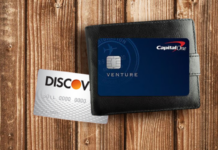Separately, I posted How to Earn Rewards by Paying Rent. There aren’t as many ways to earn rewards from paying your mortgage, but it is still possible. Here’s a primer on the best ways to earn rewards from paying mortgage…

Pay Mortgage with a Credit Card via Plastiq
Plastiq is a bill payment service that allows paying many types of bills with a credit card for a fee (currently 2.35% for the Brex Card and 2.85% for all other cards). Unfortunately, only Mastercard and Discover credit cards can be used to pay your mortgage. Worse, both Capital One and US Bank ban the use of their Mastercards to pay mortgage. For all other Mastercard and Discover cards, though, you can use Plastiq to pay your mortgage and you will earn rewards as if it was a regular purchase — you will not incur cash advance fees.
More details about Plastiq can be found here: Complete guide to Plastiq credit card payments.
Earn rewards through welcome bonuses
Many banks offer huge bonuses when you sign up for a new card and meet the minimum spend requirements. For example, it’s common to see an offer for 60,000 points or more after $4,000 spend in 3 months. With these big welcome bonuses, it can be well worth paying Plastiq’s 2.85% fee in order to meet the minimum spend requirements by paying your mortgage via credit card.
Earn spend bonuses: elite status, free nights, etc.
Many credit cards offer bonuses for meeting high spend thresholds. You can find a comprehensive list here: Best big spend bonuses. Whether or not it makes sense paying Plastiq’s fee in order to reach these thresholds depends upon how much you value elite status or other rewards earned.
Here are a few examples of big spend bonuses available with Mastercard credit cards:
- Chase Aeroplan Card: Renew 25K status w/ $15K spend ⚬ Status Boost w/ $50K spend ⚬ Priority Reward w/ $100K, $250K, $500K, or $750K spend ⚬ Free award companion for rest of calendar year and all of next with $1Million spend
- IHG Premier Card or IHG Premier Business Card: 10K bonus points + $100 statement credit after you spend $20K in a calendar year + make one additional purchase ⚬ Diamond status after $40K in purchases + one additional purchase in a calendar year. Business card only: Free night certificate (up to 40K points) after $60K in purchases + one additional purchase in a calendar year.
- American Airlines cards: Most American Airlines cards now earn Loyalty Points in addition to redeemable miles with spend. This makes it possible to earn elite status without flying. Some also offer extra bonuses for large spend. Here are some examples:
- Citi® AAdvantage Platinum Select® World Elite MasterCard: $125 AA Flight Discount with $20K membership year spend.
- Citi® AAdvantage Executive World Elite Mastercard: Earn 10,000 additional Loyalty Points after you spend $40,000 in purchases during the qualifying status year.
- CitiBusiness AAdvantage Platinum Select MasterCard: $99 companion certificate with $30K membership year spend.
- AAdvantage Aviator Red World Elite MasterCard: $99 companion certificate with $20K membership year spend.
- AAdvantage Aviator World Elite Business Mastercard: $99 companion certificate with $30K membership year spend.
- Barclaycard JetBlue Plus, or JetBlue Business: Spend $50,000 and get Mosaic status which offers free checked bags; expedited security; early boarding; free drinks; enhanced point earnings; and 15,000 bonus points upon qualifying.
Earn rewards through spend
Not many cards earn rewards worth more than 2.85% when not considering welcome bonuses, bonus categories, or big-spend bonuses, but there are a few. Based on our estimated point values (Reasonable Redemption Values), you can earn up to 3% with the right card. That said, that’s such a small increment in value over Plastiq’s 2.85% fee that I wouldn’t recommend bothering with this unless you need the points for an even more valuable award.
Conclusion
It’s possible to earn huge rewards by regularly signing up for new credit cards and using your mortgage spend to earn welcome bonuses. In some cases, even without a welcome bonus, it can make sense to pay Plastiq’s fees in order to earn “big-spend” bonuses such as elite status, free nights, companion tickets, etc. I don’t usually recommend paying your mortgage through Plastiq without earning a welcome bonus or big spend bonus, but it can make sense at times. For example, by using the Citi Double Cash card, you can earn 2 ThankYou points per dollar. After Plastiq’s 2.85% fee, that’s like paying 1.425 cents per point. That can make sense if you also have a Premier or Prestige card so that you can transfer points to loyalty programs in order to book high value rewards.
See also: How to Earn Rewards by Paying Rent.





How does the new contender of the Mesa Homeowners Card play into The Game of credit cards, points, and miles?
So this is an article just about Plastiq? No creative tricks up the sleeve??
my mortgage company allows me to pay my mortgage via debit card with no fees (caliber). Could I use the Point Debit card to pay and earn 2%?
Sometimes earning points can be alot of work and effort that takes time and gas. Sometimes you can earn points in your sleep. I call paying my mortgage on the Double Cash through Plastiq pajama points because they automatically earn points each month. Yes, the fee of 2.9% stinks, but I consider that these points will earn way more than 2.9%. If my aggregate methods of earning points has some cheaper ways (Rakuten), and some more costly Plastiq, and some in between, then that is all part of the game.
At first reading the title, I thought there was a way to pay for mortgage with credit cards without fees.
I still haven’t given up hope…
This is very high cost to buy points or status. Unless you have a signup bonus that you just cannot meet the spending requirement, I think all other use case you are at loss.
With a title like that, I was hoping Greg would have some big reveal for a lucrative approach to paying a mortgage. Even if it was convoluted, I would have considered it. I guess instead this serves as a confirmation of what I was already understanding to be the case. Other than the occasional school fee for the kids, I pay almost my entire life through CC … except mortgage. Oh well, at least I was able to refinance in late 2020 to well under 3%.
Is it possible to use Plastiq with MC prepaid GCs, which could then be drawn down to pay for mortgage?
No plastiq doesn’t take prepaid debit, VC or MC. They banned it more than a year ago.
Curious as to whether anyone knows why there’s such hostility among the credit card issuers to using their cards to pay your mortgage? It seems like a legitimate use to me.
I’m guessing it’s due to a fear of the credit user failing to pay the balance and the CC issuer prob can’t get their money back from the home equity.
How is this different from any other charge you make on a credit card?
Yeah, it’s debt on debt … a bit like you taking out a second mortgage without any approved collaterilization (if that’s a word).
Technically, the Visa network doesn’t prohibit using a Visa card to process a debt payment. But, the Visa network characterizes a debt payment as a cash-like transaction. As such, a person will not earn points and will be charged a cash advance fee. While it’s not prohibited, it’s impractical. I believe Amex has an outright prohibition.
To extend Greg’s concept, one could use a payment service to pay a car loan, a student loan . . . any kind of loan. It just needs to be on a Mastercard.
For those in business, there is an alternative to Plastiq. It’s called Melio Payments. Melio’s fees are roughly the same as Plastiq, although I believe it is experimenting with alternative fee structures. It is important to note that ONLY business-related payments are allowed. That being said, payment of a mortgage on an investment property is allowed.
What I don’t understand is why they would treat a mortgage payment differently from, say, a phone bill payment?
Let’s say that I lend you $1k in cash. Let’s say that you want to pay me back and use a credit card to do so. The card issuer doesn’t see this as a purchase of either a good or a service. It is an interpersonal transfer.
Let’s say that I lend you $1k for a home loan. How does the card issuer know the difference.
For tax purposes, the interpersonal transfer is not taxable. The home loan payment is taxable.
When a payment is made to a person via PayPal, PayPal asks whether it is a interpersonal transfer or for goods/services. If it is interpersonal, no 1099. If it is for goods/services, yes 1099.
As characterization of every loan repayment type could be unwieldy, I’m guessing that Amex and Visa wanted a simple straightforward characterization of all loan repayments — even if it means disallowing things like a mortgage, car loan, or student loan. I think it was too much of an administrative burden.